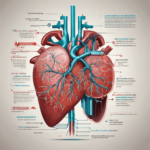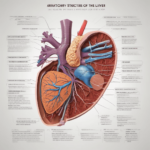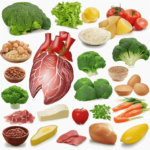Introduction:
Embarking on the journey to gain weight with a fast metabolism requires a nuanced understanding of the body’s intricate metabolic processes. A fast metabolism, characterized by an efficient calorie-burning mechanism, presents unique challenges for individuals striving to increase body mass. The primary hurdle lies in the body’s propensity to swiftly convert calories into energy, leaving little surplus for weight gain. To counteract this, a foundational strategy involves maintaining a consistent caloric surplus – consuming more calories than the body expends. Calculating individual daily energy needs is crucial for tailoring an effective nutrition plan. Nutrient-dense foods, rich in proteins, healthy fats, and complex carbohydrates, play a pivotal role in achieving this surplus while ensuring the intake of essential nutrients.
In addition to calorie management, meal frequency is a key consideration. Consuming smaller, frequent meals throughout the day helps maintain a continuous influx of nutrients, preventing the body from relying on energy reserves for fuel. Furthermore, incorporating a well-rounded strength training regimen is essential for individuals with fast metabolisms. Strength exercises stimulate muscle growth, countering the tendency to burn excess calories and aiding in the development of lean muscle mass. Protein intake assumes heightened importance in this context, as it supports muscle repair and growth. Including protein-rich foods and, if necessary, supplements can contribute significantly to the overall strategy for weight gain.
Successfully gaining weight with a fast metabolism demands a multifaceted approach that addresses both the metabolic challenges and the goal of building lean muscle mass. By meticulously managing calorie intake, prioritizing nutrient-dense foods, adopting a strategic meal frequency, and incorporating strength training, individuals can navigate the complexities of a fast metabolism, ultimately achieving their objectives of healthy and sustainable weight gain.
Strategies for Gaining Weight with a fast metabolism:
-
- Precise Caloric Surplus Calculation: Gaining weight with a fast metabolism demands a meticulous approach to caloric intake. Utilize advanced tools like metabolic rate trackers or consult with nutrition experts for accurate daily energy needs assessment. Regularly reassess and fine-tune the caloric surplus to adapt to fluctuations in metabolism and evolving fitness levels, ensuring a consistent and optimal surplus for sustained weight gain.
- Nutrient-Dense, Energy-Rich Food Choices: Striking a balance between nutrient density and energy richness is pivotal. Incorporate an array of nutrient-dense yet calorie-dense foods into the daily diet. Avocados, nuts, seeds, dried fruits, and healthy oils are not only packed with essential nutrients but also contribute significantly to the overall energy intake, ensuring a holistic and nourishing approach to weight gain.

-
- Strategic Meal Timing and Frequent Eating: The timing and frequency of meals play a crucial role in combating the rapid energy expenditure associated with a fast metabolism. Break down the daily caloric goal into multiple smaller, strategically timed meals. Integrate balanced snacks between main meals to maintain a consistent nutrient supply, and consider a nutrient-dense meal before bedtime to sustain energy levels during the overnight fasting period.
- Strategic High-Intensity Strength Training: Designing an effective strength training program is imperative for those with a fast metabolism. Prioritize compound exercises that engage multiple muscle groups, emphasizing movements like squats, deadlifts, and bench presses. Implement a progressive overload approach, gradually increasing resistance over time to stimulate continuous muscle growth and facilitate weight gain.

-
- Optimized Protein Intake: Protein is a cornerstone for muscle development, making its optimized intake crucial. Diversify protein sources with lean meats, poultry, fish, eggs, dairy, legumes, and plant-based options. Consider incorporating protein supplements, such as whey or plant-based protein powders, if meeting elevated protein requirements through whole foods becomes challenging.
- Hydration and Caloric Beverages: Hydration is non-negotiable, but strategic inclusion of caloric beverages can enhance overall energy intake. Craft nutrient-dense smoothies, shakes, or homemade beverages to supplement calories without inducing a sense of fullness. Striking the right balance between liquid calories and whole foods ensures a comprehensive and diverse nutrient profile.
- Continuous Monitoring and Strategy Adjustment: The weight gain journey requires ongoing vigilance and adaptability. Regularly monitor progress through body measurements and weight tracking, adjusting strategies as needed. Incrementally increase the caloric surplus if progress is slow, or modify the approach if weight gain is disproportionate, ensuring a dynamic and responsive plan.
- Mindful Eating Practices: Infuse mindfulness into eating habits to optimize the efficacy of weight gain strategies. Pay attention to hunger cues, practice mindful eating by savoring flavors and textures, and minimize distractions during meals. These practices foster better digestion, create a positive relationship with food, and may naturally increase overall food intake.
- Sleep and Stress Management: Often overlooked but crucial contributors to weight gain are adequate sleep and stress management. Establish a consistent sleep routine to support hormonal balance and metabolism. Implement stress management techniques, such as mindfulness, meditation, or engaging in relaxing activities, to create an optimal physiological environment conducive to weight gain.

Incorporating these detailed strategies into a personalized plan ensures a comprehensive and effective approach to weight gain for individuals with a fast metabolism. Upholding consistency, practicing patience, and proactively adjusting the plan to evolving needs constitute the bedrock of a successful weight gain journey in the context of a fast metabolism.
Challenges of Gaining Weight with a Fast Metabolism:
-
- High Caloric Demand and Efficient Expenditure:
Individuals grappling with a fast metabolism encounter the formidable hurdle of a heightened caloric demand. Their bodies excel at converting consumed calories into energy, making it a constant struggle to establish and maintain a significant caloric surplus. This challenge necessitates a meticulous approach, requiring individuals to consistently and consciously consume more calories than their inherently efficient metabolisms naturally burn. - Persistent Struggle in Caloric Surplus Maintenance:
Even when successful in achieving a caloric surplus, individuals face the relentless risk of their fast metabolism rapidly utilizing those additional calories for energy expenditure. This creates a demanding scenario where maintaining a caloric surplus becomes an ongoing challenge. A proactive and dynamic approach is essential, involving continuous monitoring and adaptive adjustments to prevent the body from swiftly reverting to a state of energy equilibrium. - Lean Body Mass Predicament:
The lean body mass characteristic of a fast metabolism presents a unique challenge in weight gain endeavors. Building muscle rather than accumulating fat becomes a priority for those aiming for a healthy weight gain. Integrating a well-structured resistance training regimen is imperative to stimulate muscle growth and counteract the propensity of a fast metabolism to burn excess calories, ensuring that the gained weight is predominantly in the form of lean muscle. - Balancing Caloric Intake with Nutrient Density:
A heightened focus on caloric intake should not overshadow the importance of nutritional quality. Fast metabolisms may lead to challenges in meeting diverse nutritional requirements, potentially resulting in nutrient deficiencies. Striking a delicate balance between achieving a caloric surplus and ensuring a diet rich in essential nutrients becomes pivotal to prevent adverse health consequences and promote overall well-being. - Challenges in Maintaining Frequent Meal Frequency:
The necessity for frequent meals to meet caloric goals poses logistical challenges. Juggling work, social engagements, and personal commitments while adhering to a consistent meal schedule demands careful planning and dedication. The ability to overcome these challenges directly influences the success of weight gain efforts, emphasizing the need for a structured and sustainable meal plan. - Adaptation to Exercise and Overcoming Plateaus:
Fast metabolisms are adept at adapting to exercise routines, potentially diminishing the effectiveness of workouts over time. This necessitates a dynamic and adaptive approach to fitness, involving regular changes to workout intensity, duration, and types of exercises performed. Incorporating periodization and progressive overload principles becomes essential to continuously challenge the body and foster ongoing muscle growth. - Metabolic Rate Fluctuations and Constant Monitoring:
Metabolic rates are subject to fluctuations influenced by factors such as age, hormonal variations, and overall health. Individuals with fast metabolisms may experience these fluctuations, impacting the efficacy of weight gain strategies. Regular assessments of metabolic rate and subsequent adjustments to dietary and exercise plans are critical for maintaining sustained progress and preventing stagnation. - Psychological and Emotional Dimensions:
The weight gain journey, particularly for those with fast metabolisms, brings forth psychological and emotional complexities. Navigating societal expectations, concerns about body image, and potential frustration with slow progress can impact mental well-being. Establishing a support system, seeking guidance from healthcare professionals or nutritionists, and fostering a positive mindset are integral aspects of addressing the emotional dimensions of weight gain. - Resilience Against the Body’s Resistance to Change:
The human body inherently resists rapid changes, and this resistance is palpable in the context of weight gain with a fast metabolism. Overcoming this resistance demands patience and a gradual approach to dietary and exercise modifications. Gentle coaxing through sustained, incremental changes is key to encouraging the body to accept and maintain a higher weight over time.
- High Caloric Demand and Efficient Expenditure:
Comprehensively understanding and addressing these multifaceted challenges is paramount in crafting a successful strategy for gaining weight with a fast metabolism. A holistic approach that encompasses nutritional, physical, and psychological considerations ensures a well-rounded and sustainable journey toward achieving a healthy weight gain.
Conclusion:
In conclusion, navigating the intricate path of gaining weight with a fast metabolism demands a comprehensive and adaptable approach. Acknowledging the challenges posed by efficient calorie burning and lean body mass, individuals embarking on this journey must meticulously tailor their strategies. From precise caloric surplus calculations, nutrient-dense and energy-rich food choices, and strategic meal timing to a dedicated focus on high-intensity strength training and optimized protein intake, each facet requires careful consideration. The complexities of a fast metabolism, including its adaptability to exercise and metabolic rate fluctuations, call for continuous monitoring and strategic adjustments. Furthermore, the psychological and emotional dimensions of the weight gain journey should not be overlooked, emphasizing the importance of a supportive environment and resilient mindset. Ultimately, success in gaining weight with a fast metabolism lies in a harmonious integration of science-backed strategies, mindful practices, and a patient, persistent commitment to achieving and maintaining a healthy and sustainable weight.
Frequently Asked Questions ( FAQS )
Q: Can genetics be overcome in gaining weight with a fast metabolism?
A: While genetics play a role, strategic planning and consistent efforts can overcome genetic predispositions.
Q: Are there specific foods to avoid for those with fast metabolism?
A: While no specific foods should be completely avoided, individuals should focus on nutrient-dense options.
Q: How soon can one expect to see results?
A: Results vary, but with a consistent and strategic approach, individuals can start seeing progress in a few weeks.
Q: Is it necessary to consult a nutritionist or fitness expert?
A: Consulting professionals can provide personalized guidance, especially when facing challenges.
Q: Can supplements alone help in gaining weight?
A: Supplements are supportive but should be part of a comprehensive strategy that includes a balanced diet and regular exercise.
Q: Why is it hard to gain weight with a fast metabolism?
A: People with fast metabolisms burn calories quickly, making it harder to store excess energy as fat. This means they need to consume more calories than they burn to gain weight.
Q: What are some symptoms of a fast metabolism?
A: Common symptoms include difficulty gaining weight, frequent hunger, feeling cold easily, and high energy levels.
Q: How can I tell if I have a fast metabolism?
A: While there’s no single test to definitively confirm a fast metabolism, some indicators include a naturally thin build, high resting heart rate, and increased appetite. Consulting a healthcare professional can help assess your individual metabolism.
Q: How many calories do I need to eat to gain weight with a fast metabolism?
A: The exact calorie intake needed varies based on individual factors like age, gender, activity level, and current weight. However, a general rule of thumb is to add 500-1000 calories to your maintenance calorie intake to promote weight gain.
Q: What are the best foods to eat to gain weight with a fast metabolism?
A: You should prioritize calorie-dense and nutrient-rich foods, including:
-
- Healthy fats: avocado, nuts, seeds, olive oil
- Complex carbohydrates: whole grains, fruits, vegetables
- Lean protein: chicken, fish, beans, lentils
- Dairy products: milk, yogurt, cheese
Q: Should I eat more often to gain weight?
A: Yes, spreading your meals throughout the day into smaller, more frequent meals helps your body absorb nutrients and build muscle more efficiently. Aim for 3 main meals and 2-3 snacks daily.
Q: Should I focus on building muscle or gaining fat?
A: Ideally, you want to gain both muscle and fat for a healthy and balanced weight gain. Building muscle mass helps boost your metabolism slightly, aiding in long-term weight maintenance.
Q: What are some effective weightlifting exercises for gaining muscle?
A: Focus on compound exercises that work multiple muscle groups simultaneously, such as squats, deadlifts, push-ups, rows, and overhead presses. Lifting heavier weights with fewer repetitions is more effective for muscle gain.
Q: Should I take supplements to gain weight?
A: While not necessary for everyone, some supplements can aid in weight gain, such as protein powder, creatine, and mass gainers. Consult a healthcare professional before starting any supplements.
Q: How long will it take to see results?
A: The rate of weight gain varies depending on individual factors and consistency with diet and exercise. Be patient and focus on making healthy and sustainable changes to your lifestyle for gradual and lasting results.
Q: When should I see a doctor?
If you’re struggling to gain weight despite implementing healthy changes or experiencing any concerning symptoms, consult a doctor to rule out any underlying medical conditions.













